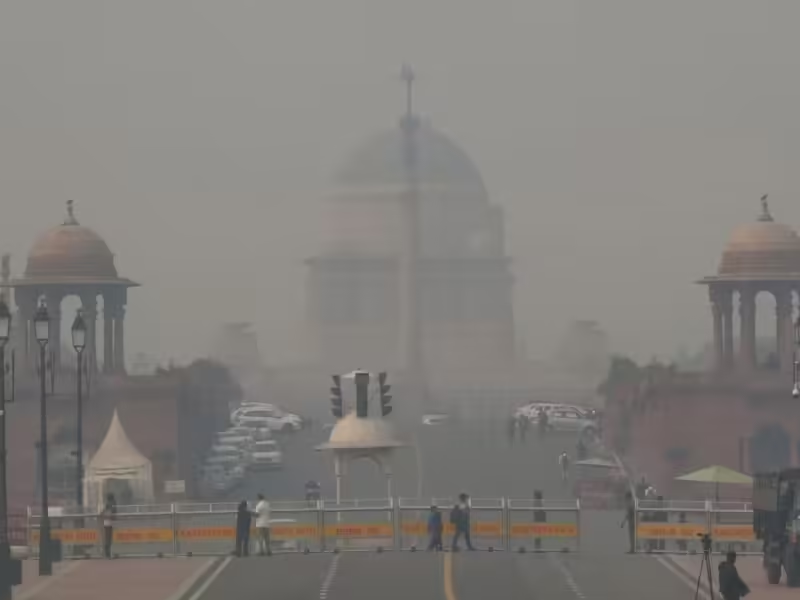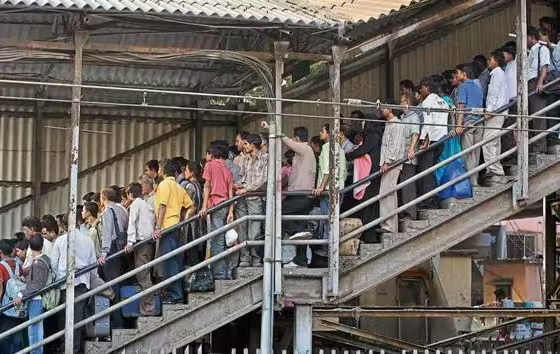New Delhi, October 27: As Delhi gears up for the festive Diwali season, the air quality index (AQI) has dropped to dangerously poor levels, with many referring to the city as a ‘gas chamber’. This alarming scenario prompts urgent questions: What is causing the AQI to decline? Why does this happen just before Diwali? Why are officials struggling to manage pollution? Why should residents be worried? And what can they do to protect themselves? This article explores the current weather conditions and the repercussions of the worsening air quality in the capital.
Grasping the AQI Crisis: What is AQI and Why is it Important?
The Air Quality Index (AQI) is a tool used to indicate how polluted the air is or how polluted it might become. In Delhi, the AQI has often soared beyond 300, a level considered hazardous and harmful to public health. Poor air quality can pose serious risks, leading to respiratory issues, heart problems, and other health challenges, especially for vulnerable populations like children and the elderly.
Reasons Behind the Increasing AQI Levels
Multiple factors contribute to the declining air quality in Delhi. Major contributors include vehicle exhaust, emissions from industries, and dust from construction sites. Winter intensifies the problem; lower temperatures cause pollutants to linger close to the ground, worsening smog conditions. Furthermore, the burning of crop stubble in neighboring regions adds fuel to the pollution fire, creating an increasingly unhealthy atmosphere.
Diwali Festivities and Air Quality: How Fireworks Affect AQI
With Diwali just around the corner, the joy of celebration also brings an unfortunate rise in air pollution, largely due to fireworks. Fireworks emit harmful substances and particles that can significantly deteriorate air quality. This year, authorities are warning against firecracker use, encouraging people to prioritize their health over festive traditions.
The Impact of Weather Conditions
Weather can greatly influence air quality. In winter, a weather pattern known as temperature inversion traps pollutants near the ground. Current meteorological forecasts suggest that wind speeds will be lower than usual, which means stagnant air could lead to extended periods of poor air quality, particularly during the festive season.
Actions Taken by Government Authorities
In light of the air quality emergency, the Delhi government has taken various steps to tackle pollution. Measures include banning firecrackers and heightening monitoring of industrial output. There’s also a push for public transport use and an emphasis on electric vehicles to lessen vehicular emissions.
The Importance of Public Awareness
Raising public awareness is vital for combating the air quality crisis. Residents are urged to stay updated on AQI levels and to take protective measures, like wearing masks and minimizing outdoor activities during high pollution times. Educational initiatives highlighting the health risks associated with pollution and the necessity for sustainable habits can also significantly aid in addressing the problem.
Protecting Yourself During Poor Air Quality
For the people of Delhi, it’s crucial to adopt proactive strategies for safeguarding their health amid poor air quality. Staying indoors on days of high pollution, using air purifiers, and wearing N95 masks outside can help lower health risks. Additionally, ensuring good indoor air quality through proper ventilation and minimizing indoor pollution sources is equally important.
As Delhi struggles with its air quality challenges, it’s essential for both the government and the public to collaborate on finding long-lasting solutions. While immediate measures can help reduce pollution’s impact, long-term efforts such as enhancing public transport options and advocating for green technologies are essential for fostering a healthier environment. Only through collective efforts can Delhi aspire to enjoy cleaner air in the future, especially during festive celebrations like Diwali.










